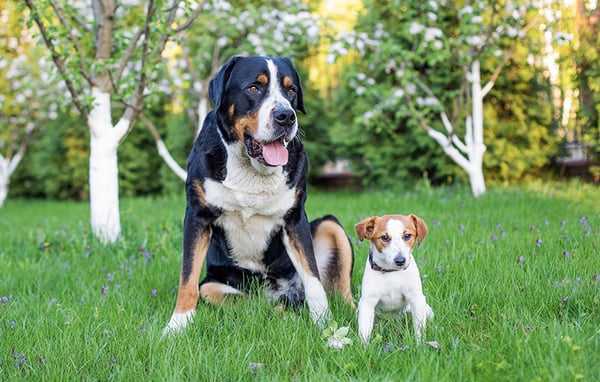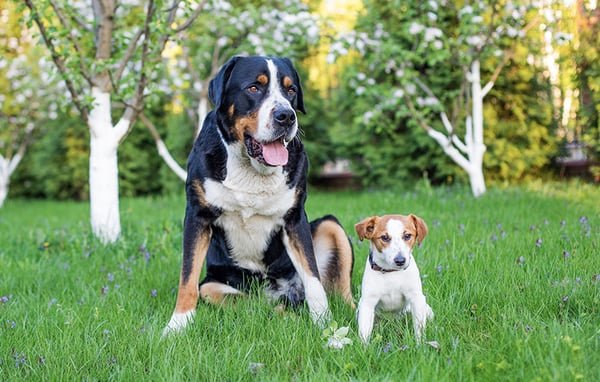If you’re curious about “how long can Bernese Mountain Dogs hold their pee,” you’ve come to the right place! These adorable and fluffy giants are known for their lovable personalities and gentle nature. But when it comes to their bathroom needs, how long can they hold it in? Let’s find out!
When it comes to using the bathroom, Bernese Mountain Dogs have impressive bladder control. On average, they can hold their pee for about 4 to 8 hours, depending on various factors such as age, health, and activity level. Just like us humans, they may need to go more frequently when they’re puppies or seniors.
It’s important to note that every dog is unique, so individual variations are common. Some Berners may hold their pee longer, while others may need to relieve themselves more frequently. As pet parents, it’s our responsibility to pay attention to cues from our furry friends and provide them with regular potty breaks to avoid any accidents. Time to let your Bernese Mountain Dog know that you’ve got their bladder needs covered!
Curious about the bladder capacity of Bernese Mountain Dogs? These lovable canines can typically hold their pee for around 6-8 hours. However, remember that every dog is unique and factors like age, health, and activity level can affect their bladder control. It’s always important to provide regular potty breaks to keep your furry friend comfortable and avoid accidents. Stay mindful of their needs and create a routine that works for both of you!

How Long Can Bernese Mountain Dogs Hold Their Pee?
Are you considering getting a Bernese Mountain Dog as a pet? One important question you may have is how long they can hold their pee. This guide will provide you with detailed information about the bladder capacity of Bernese Mountain Dogs and tips for managing their bathroom needs. Understanding their capabilities in this regard can help ensure a happy and comfortable experience for both you and your furry friend.
The Bladder Capacity of Bernese Mountain Dogs
Bernese Mountain Dogs are large and sturdy dogs with a strong bladder capacity. On average, they can hold their pee for about 4 to 8 hours during the day. However, it’s important to note that individual dogs may have varying bladder capacities, and factors such as age, size, and overall health can influence their holding time. Puppies, for example, have smaller bladders and will need more frequent bathroom breaks compared to adult dogs.
To minimize accidents and discomfort for your Bernese Mountain Dog, it’s essential to establish a consistent routine for bathroom breaks. Taking them out for a walk or a potty break every 4 to 8 hours is recommended, ensuring they have ample opportunity to relieve themselves. Additionally, providing plenty of opportunities for exercise and playtime can help regulate their bladder function and promote overall bladder health.
It’s also worth noting that as with any dog, Bernese Mountain Dogs may need to relieve themselves more frequently if they have recently consumed a large amount of water or if they are stressed or anxious. Being attentive to their needs and observing any changes in their behavior can help you anticipate when they may need a bathroom break.
The Importance of Consistent Training
Consistent training is crucial when it comes to managing your Bernese Mountain Dog’s bathroom needs. By establishing a routine and reinforcing positive behavior, you can help them develop good bladder control and minimize accidents in the house. Here are some tips for effective training:
- Start training your Bernese Mountain Dog as soon as you bring them home. Consistency and patience are key.
- Designate a specific spot outside for them to relieve themselves. Take them to this spot consistently to reinforce the behavior.
- Use positive reinforcement techniques such as praise, treats, and rewards when they successfully go potty outside.
- Establish a regular feeding schedule to regulate their digestion and bathroom habits.
- Set a timer and take them out for bathroom breaks at regular intervals throughout the day.
Managing Bathroom Needs When You’re Away
It’s natural to be concerned about your Bernese Mountain Dog’s bathroom needs when you’re away from home for an extended period. Fortunately, there are several options available to ensure their comfort and well-being:
If you’re away for a short period, consider hiring a dog walker or asking a trusted friend or family member to check in on your dog and take them for a bathroom break.
If you’re going to be away for a longer duration, you may want to consider using pee pads or a designated area indoors where your dog can relieve themselves. Properly training them to use these areas can alleviate any stress or discomfort caused by needing to hold their pee for extended periods.
Alternatively, you can look into doggy daycare or boarding facilities that provide regular bathroom breaks and care for your Bernese Mountain Dog in your absence. These options ensure that your pet’s bathroom needs are adequately met and that they receive the socialization and attention they need.
Additional Considerations for Bernese Mountain Dog Owners
As a Bernese Mountain Dog owner, there are a few additional factors you should keep in mind when it comes to managing their pee holding abilities:
Diet and Hydration
The diet and hydration of your Bernese Mountain Dog can impact their bladder control. Ensure that they have access to fresh water at all times, but be mindful not to overhydrate them right before bedtime or before leaving them alone for extended periods. Additionally, feeding them a balanced diet that suits their individual needs can contribute to good bladder health.
Age and Health
As Bernese Mountain Dogs age, their bladder control may decrease. It’s essential to monitor their bathroom habits and consult with a veterinarian if you notice any changes or concerns. Certain health conditions can also affect bladder function, so regular check-ups and proper veterinary care are crucial for maintaining their overall well-being.
Environmental Factors
The environment in which your Bernese Mountain Dog lives can also influence their bathroom needs. If they live in a high-rise apartment or in a house with limited outdoor access, you may need to make additional arrangements to ensure they have ample opportunities to relieve themselves. Providing indoor grass patches or using doggy litter can be helpful alternatives in such situations.
By considering these additional factors and implementing effective training and management techniques, you can ensure that your Bernese Mountain Dog remains comfortable and their bathroom needs are met.
Bernese Mountain Dogs: A Loving and Loyal Companion
Bernese Mountain Dogs are not only known for their majestic appearance but also for their loving and loyal nature. They make excellent family pets and are generally eager to please their humans. Taking the time to understand their unique needs, including their ability to hold their pee, is part of responsible pet ownership.
Remember, every dog is unique, and while the information provided here offers general guidelines, it’s essential to observe and understand your specific dog’s behavior and needs. With love, patience, and consistency, you can provide your Bernese Mountain Dog with a comfortable and fulfilling life.
Key Takeaways: How long can Bernese Mountain Dogs hold their pee
- Bernese Mountain Dogs can generally hold their pee for about 6-8 hours.
- Puppies have a smaller bladder capacity and may need to pee more frequently, approximately every 1-2 hours.
- It’s important to establish a regular bathroom routine to prevent accidents in the house.
- Provide ample opportunities for your dog to go outside and do their business.
- If you’re unable to let your dog out for an extended period, consider using indoor pet potty systems.
Frequently Asked Questions
How often should Bernese Mountain Dogs be let out to pee?
As a general guideline, Bernese Mountain Dogs should be let out to pee every 4-6 hours, depending on their age and health. Puppies have smaller bladders and may need to go out more frequently, while adult dogs can usually hold it for longer periods. However, it’s important to take your individual dog’s needs into consideration. If your Bernese Mountain Dog is showing signs of needing to go, such as restlessness or pacing, it’s best to let them out sooner.
It’s also important to note that the frequency of potty breaks can vary depending on factors such as diet, exercise, and water intake. Keeping a consistent routine and providing opportunities for regular bathroom breaks will help ensure your Bernese Mountain Dog is comfortable and avoids accidents in the house.
What can happen if a Bernese Mountain Dog holds their pee for too long?
If a Bernese Mountain Dog holds their pee for too long, it can lead to various health issues. Holding urine for an extended period can put strain on the dog’s bladder and kidneys, potentially leading to urinary tract infections, bladder stones, or even kidney damage. It can also cause discomfort and physical pain for the dog.
In addition to urinary issues, holding pee for too long can also result in behavioral problems. Dogs that are unable to relieve themselves regularly may become stressed, anxious, or even exhibit destructive behavior. To ensure your Bernese Mountain Dog’s overall health and well-being, it’s important to provide them with adequate opportunities to relieve themselves throughout the day.
How can I tell if my Bernese Mountain Dog needs to pee?
There are several signs that may indicate your Bernese Mountain Dog needs to pee. These signs include pacing or restlessness, sniffing the ground or circling, whining or barking, and suddenly becoming more alert. Some dogs may also start to exhibit signs of anxiety or discomfort, such as frequent licking of the genital area or increased agitation.
It’s essential to pay attention to your dog’s behavior and body language to determine when they need to go outside. Establishing a regular potty routine and being aware of the typical times when your dog may need to relieve themselves can also be helpful. If in doubt, it’s always better to err on the side of caution and let your Bernese Mountain Dog out more frequently.
Can Bernese Mountain Dogs be potty trained to hold their pee for longer periods?
Yes, Bernese Mountain Dogs can be potty trained to hold their pee for longer periods with proper training and consistency. Potty training should start at a young age, and positive reinforcement techniques should be used to reward desired behavior. Crate training can also be beneficial in teaching your Bernese Mountain Dog to hold their pee for longer periods of time.
It’s important to remember that potty training is a gradual process and may take time. It’s best to start with frequent potty breaks and gradually increase the time between breaks as your dog becomes more reliable. Always be patient, consistent, and reward your Bernese Mountain Dog for successful bathroom trips to encourage them to hold their pee for longer periods.
Are there any medical conditions that can affect a Bernese Mountain Dog’s ability to hold their pee?
Yes, there are several medical conditions that can affect a Bernese Mountain Dog’s ability to hold their pee. For example, urinary incontinence is a condition where a dog has difficulty controlling their bladder, resulting in accidental urination. This condition can be caused by various factors, including weak bladder muscles or hormone imbalances.
Another condition that can impact a dog’s ability to hold their pee is bladder stones. These are mineral deposits that form in the bladder and can cause pain and urinary issues. In some cases, dogs with bladder stones may experience frequent urination or difficulty emptying their bladder completely.
If you notice any concerning symptoms or changes in your Bernese Mountain Dog’s urinary habits, it’s important to consult with a veterinarian for a proper diagnosis and treatment plan.

Summary
Bernese Mountain Dogs can hold their pee for about 6-8 hours as adults. Puppies have smaller bladders and need to go more often. It’s important to take them out regularly to avoid accidents.
